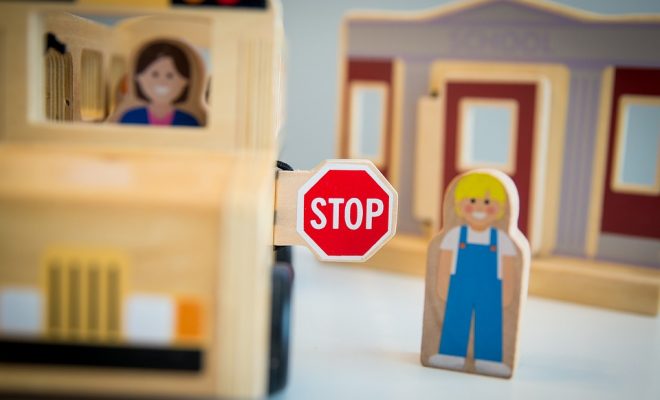Here Are 4 of My Thoughts on Whether Universal Pre-K is Necessary

In his State of the Union address, President Obama brought up the topic of universal Pre-Kindergarten learning and praised the programs already in place in states like Florida, South Carolina and New Jersey. He connected Pre-K initiatives to his Race to the Top program that has the lofty goal of making the U.S. the worldwide leader in college attendees and graduates.
His administration claims that the academic skill sets needed to reach that goal must have their foundation before Kindergarten and that the responsibility for that lies in public funding.
But is this true? Here are my thoughts from an educator’s view.
1. First, it’s no secret that the U.S. lags behind other developed nations, especially when it comes to science and math. To compete as a nation on a global scale, this generation of K-12 (or P-12) students simply need to know more than their parents did as children. This fact has led to some passionate discourse both for and against more stringent academic standards that start in early childhood and extend into the college years.
2. Universal Pre-K programs tend to benefit disadvantaged and at-risk students the most. Children from middle-to-high class socioeconomic backgrounds do not feel the positive effects of preschool as strongly as their low-income and minority peers. In families where at least one parent can be home with children in the early years, and able to do basic learning activities with them, the impact of Pre-K programs are virtually non-existent by the time the child is in mid-elementary school. Children that participate in play-oriented preschool programs but have attentive parents that expose them to minimal learning fare just as well, or better than, peers who attend regimented Pre-K programs.
3. Socialization and preparation are two other reasons for pre-Kindergarteners to attend school. Of course, academics are not the only benefit to Pre-K programs. Socialization and an idea of what to expect when the school years come along are also an integral part of the Pre-K process. Kindergarten used to be an adjustment year for children, but now kids who arrive in these classrooms are expected to know much more.
4. Be aware of how preschool can affect these same children when they reach kindergarten and beyond. As I have said before, being prepared for the next school year is also an important part of the Pre-K process. Kindergarten used to be an adjustment year for children, but now kids who arrive in these classrooms are expected to know much more. Common Core standards exist at the Kindergarten level, with the expectation that these students will know how to read simple sentences competently, do basic addition and subtraction problems and understand basic time concepts. States that already have tax-funded Pre-K programs test Kindergartners and report back to the preschool provider the results. In some cases, future funding rests on whether or not the Pre-K program adequately prepared enough students for the academic rigors of Kindergarten.
So then the question becomes one of impact. Will universal learning at a younger age make a big enough difference long-term to justify the added cost and resources? How much time do children really need to learn what they will need to know to compete globally?
Parents seem to be split on the issue, with one side affirming the need for stronger academic standards and the other side bemoaning the difficulty of material their young children bring home from school. Districts throughout the country have listened to parents’ complaints when it comes to implementation of all-day Kindergarten (versus the traditional half-days) and some parents have even decided to homeschool their children because they so strongly disagree with the academic rigor. Given this cultural climate, I wonder what is to be expected when more states roll out
Pre-K programs? Right now it is voluntary for families – but will that always be the case?
Is universal Pre-K a necessity – and if so, are American educators, parents and young students really ready for it?
Leave a comment—I’m looking forward to hearing your thoughts.





